Fresh herbs vs dried herbs: Everything You Need To Know
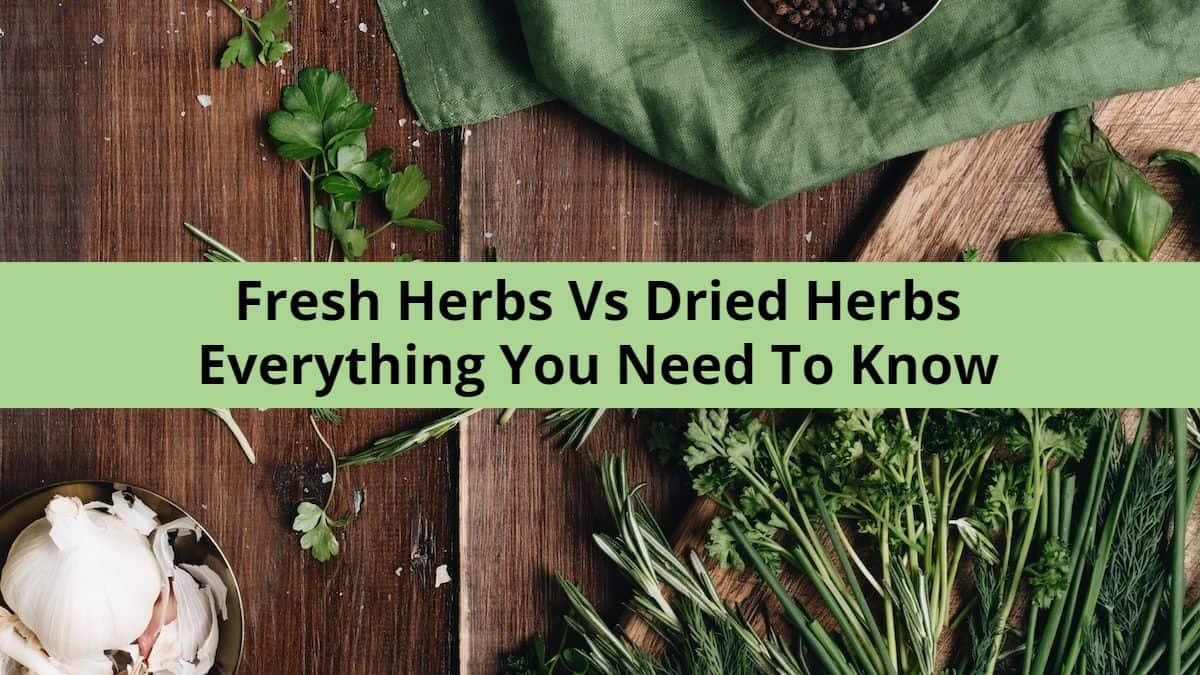
Herbs are an essential ingredient in many recipes, adding flavor and aroma to a wide variety of dishes. While herbs can be used fresh or dried, it’s important to know the differences between the two and how to use them in cooking.
Fresh herbs are often used for their delicate flavor and aroma, while dried herbs are used for their more concentrated and robust flavor.
In this article, I explore the differences between fresh and dried herbs, as well as the best ways to store and use them in cooking.
So, whether you’re a seasoned cook or just starting out in the kitchen, this article has everything you need to know about using fresh and dried herbs in your cooking.
Fresh herbs Vs Dried Herbs in Cooking
When using herbs in cooking (basil, coriander, parsley etc.) what is the difference in the nutritional profile between using store bought dried herbs or fresh herbs?
Fresh herbs generally have a higher water content and a more delicate flavor than dried herbs.
They are a good source of vitamins, minerals, and antioxidants, and the nutritional value of fresh herbs can vary depending on the specific herb and how it is grown.
Dried herbs, on the other hand, have a more concentrated flavor and a longer shelf life than fresh herbs.
They can be a good source of certain nutrients, but they may also lose some of their nutritional value during the drying process.
In general, both fresh and dried herbs can be a healthy addition to your diet and can add flavor and nutrition to your meals.
KEY TAKEAWAY
Both fresh and dried herbs can add flavor and nutrition to meals, with fresh herbs having a higher water content. Dried herbs have a more concentrated flavor and longer shelf life,
Fresh herbs Vs Dried herbs nutrient comparison
Here is a comparison of the nutrient profiles of the top 10 most commonly used herbs in both dried and fresh forms:
It’s worth noting that the specific nutritional content of herbs can vary depending on the soil they are grown in, how they are cultivated, and how they are stored and handled. These are just general estimates of the nutrient profiles of these herbs.
How herbs are dried?
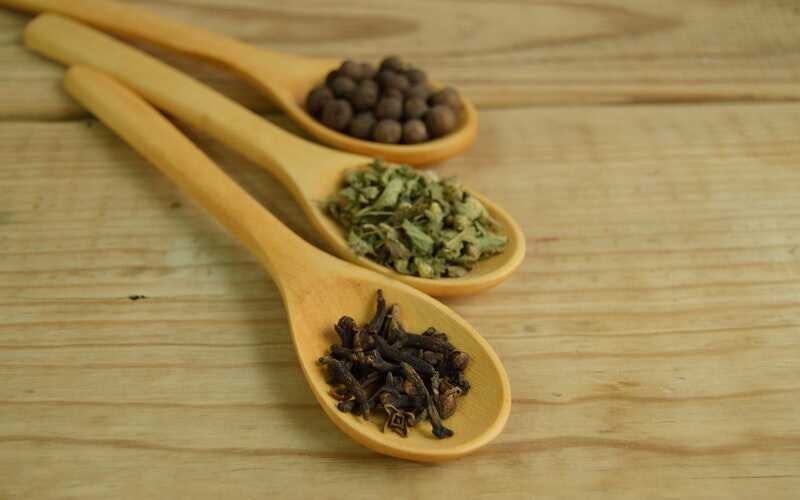
Air-drying
This is the simplest and most natural method of drying herbs. To air-dry herbs, you can tie small bunches of herbs together with string and hang them upside down in a cool, dry, and well-ventilated area.
Alternatively, you can lay the herbs out on a clean, dry surface such as a screen or a paper towel and leave them to dry for several days.
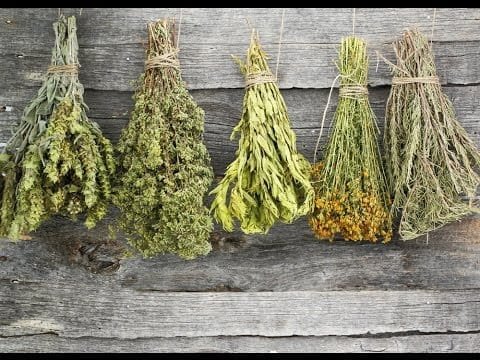
Dehydrating
Dehydrating herbs is a faster way to dry them than air-drying. You can use a food dehydrator or an oven set to a low temperature (around 95-115°F) to dry the herbs.
Spread the herbs out on a tray or a rack and place them in the dehydrator or oven, making sure to leave enough space between the herbs for airflow.
Microwave drying
You can also use a microwave to dry herbs, but this method is not recommended as it can cause the herbs to lose some of their flavor and nutritional value.
To microwave-dry herbs, place them on a paper towel and microwave them on high power for 30 seconds to 1 minute.
Sun-drying
Sun-drying is another option for drying herbs, but it is not practical in all climates.
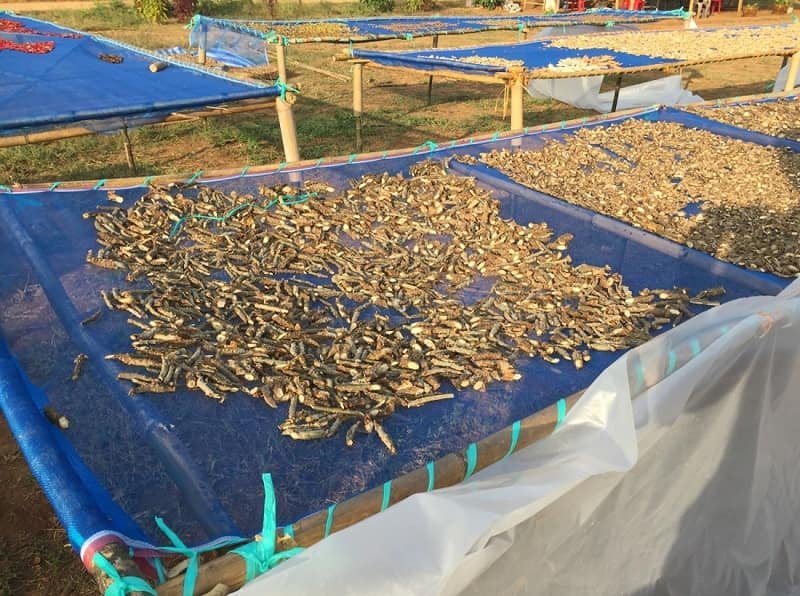
To sun-dry herbs, you can spread them out on a clean, dry surface such as a screen or a paper towel and place them in a sunny, well-ventilated area. Make sure to turn the herbs every few hours to ensure even drying.
Regardless of the drying method you choose, it is important to handle the herbs gently and carefully to preserve their flavor and nutritional value. Dried herbs should be stored in an airtight container in a cool, dry place, away from direct sunlight.
When should I use fresh herbs vs dried herbs?
Fresh herbs are generally used when a recipe calls for a more delicate flavor or when the herb is used as a garnish.
They should be added to a recipe near the end of the cooking time so that their flavor is not lost.
Dried herbs, on the other hand, are best used when a recipe calls for a more intense, robust flavor, as the drying process concentrates the flavor of the herb. They can be added at the beginning of the cooking process.
It’s also worth noting that dried herbs are generally more potent than fresh herbs, so you will need to use less of them.
As a general rule, use about 1 teaspoon of dried herb for every 1 tablespoon of fresh herb called for in a recipe.
It’s also important to keep in mind that not all herbs are suitable for drying. Herbs with a high moisture content, such as basil and parsley, do not dry well and are best used fresh.
Why herbs taste different when dried vs fresh?
Herbs taste different when they are fresh versus dried because the drying process concentrates the flavor of the herb.
When an herb is fresh, it contains a lot of moisture, which dilutes the flavor. As the herb dries, the moisture is removed, leaving behind a more concentrated version of the herb’s flavor.
It’s also worth noting that the flavor of an herb can change over time, even when it is fresh.
For example, the flavor of basil will become more pungent as the plant matures. Similarly, the flavor of an herb can be affected by factors such as the soil in which it is grown, the amount of sunlight it receives, and the temperature at which it is grown.
All of these factors can influence the flavor of an herb, whether it is fresh or dried.
Storing Herbs
What is the best way to store fresh herbs like parsley, cilantro, and mint?
There are a few different ways to store fresh herbs like parsley, cilantro, and mint to help them last longer. Here are a few options:
Wet vs. dry storage or wrapped vs. unwrapped
Are there any benefits to storing them wet vs. dry or wrapped vs. unwrapped?
There are benefits to both storing herbs wet or dry, as well as wrapped or unwrapped.
Storing the herbs wet helps to keep them hydrated and prevents them from wilting, while storing them dry allows excess moisture to evaporate, which can prevent the herbs from spoiling.
Wrapping the herbs in a damp paper towel or plastic bag can help to keep them fresh, while leaving them unwrapped allows excess moisture to evaporate and can help to prevent the herbs from getting too moist and developing mold.
Ultimately, the best way to store fresh herbs will depend on the specific herb and your personal preference. Experiment with different storage methods to see which works best for you.
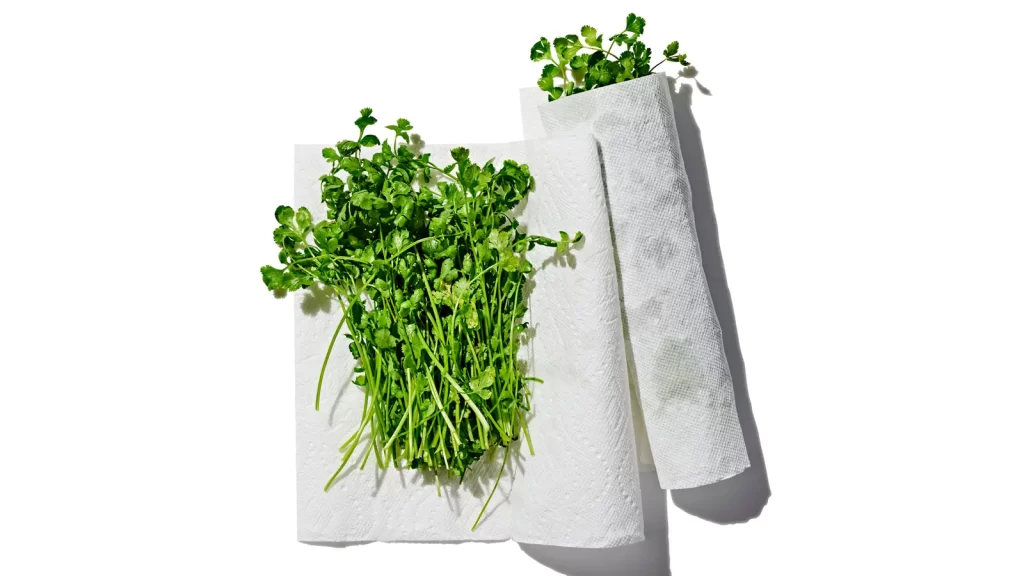
How long can you keep dried oregano or parsley vs. fresh herbs before they lose their potency or go bad?
The shelf life of dried herbs is generally longer than that of fresh herbs, as the drying process removes most of the moisture from the herb, which helps to preserve it. With proper storage, dried herbs can last for several months to a couple of years.
That being said, the potency of dried herbs will eventually diminish over time, so it’s a good idea to replace them every year or so. You can tell if a dried herb has lost its potency if it has a faded color or if it has a weak or stale flavor when you taste it.
As for fresh herbs, they will generally last for about a week to 10 days when stored in the refrigerator. However, the exact shelf life will depend on the specific herb and how it is stored.
Basil, for example, is more delicate and will not last as long as hardier herbs like rosemary or thyme. To help fresh herbs last longer, store them in the vegetable crisper of your refrigerator and wrap the stems in a damp paper towel.
You can also store fresh herbs in a glass of water, as you would with flowers, to help them stay hydrated.
Bottom Line
In summary, fresh herbs are best used when a recipe calls for a more delicate flavor or when they are used as a garnish, while dried herbs are best used when a recipe calls for a more intense, robust flavor.
Dried herbs have a longer shelf life than fresh herbs and are generally more potent, so you will need to use less of them in a recipe. Proper storage is key to keeping both fresh and dried herbs fresh and flavorful for as long as possible.
Read Next
Octopus vs Red Meat: A Nutritional Comparison
Beef vs Pork vs Chicken: Which meat is best
Matcha Tea Vs Green Tea Comparison of Nutrients, Benefits
